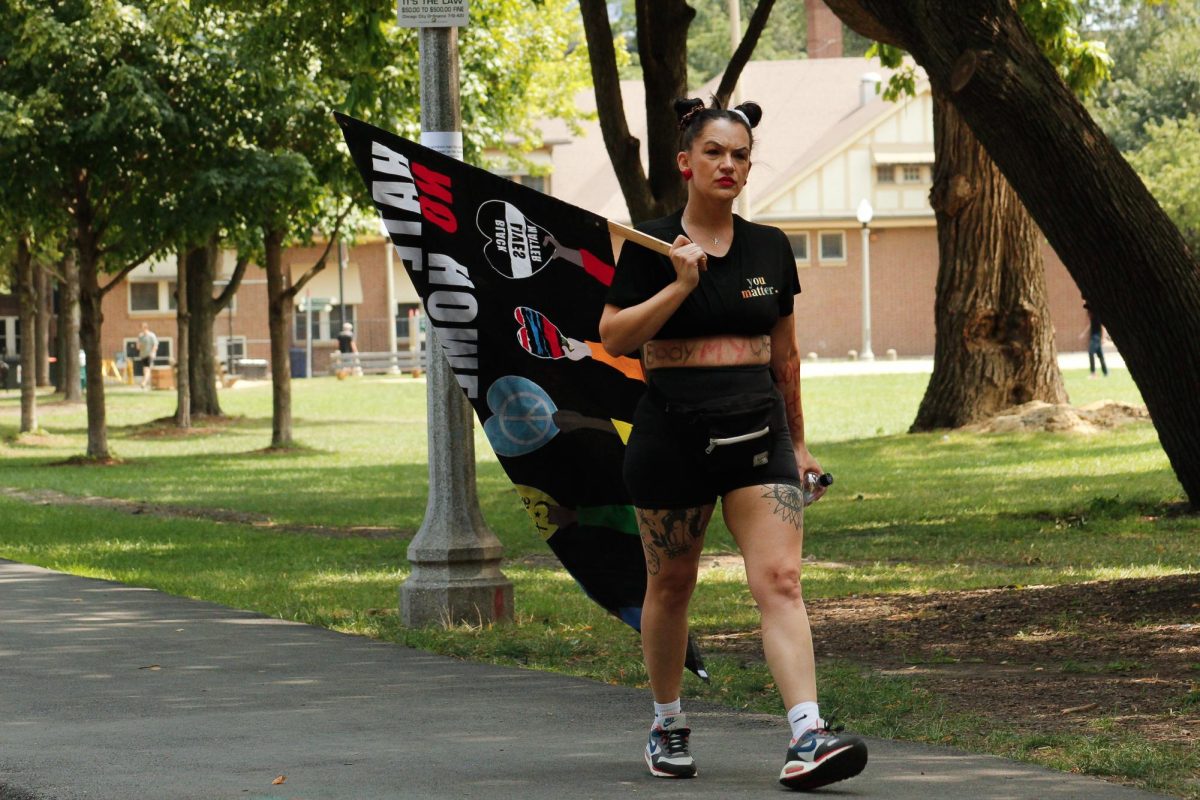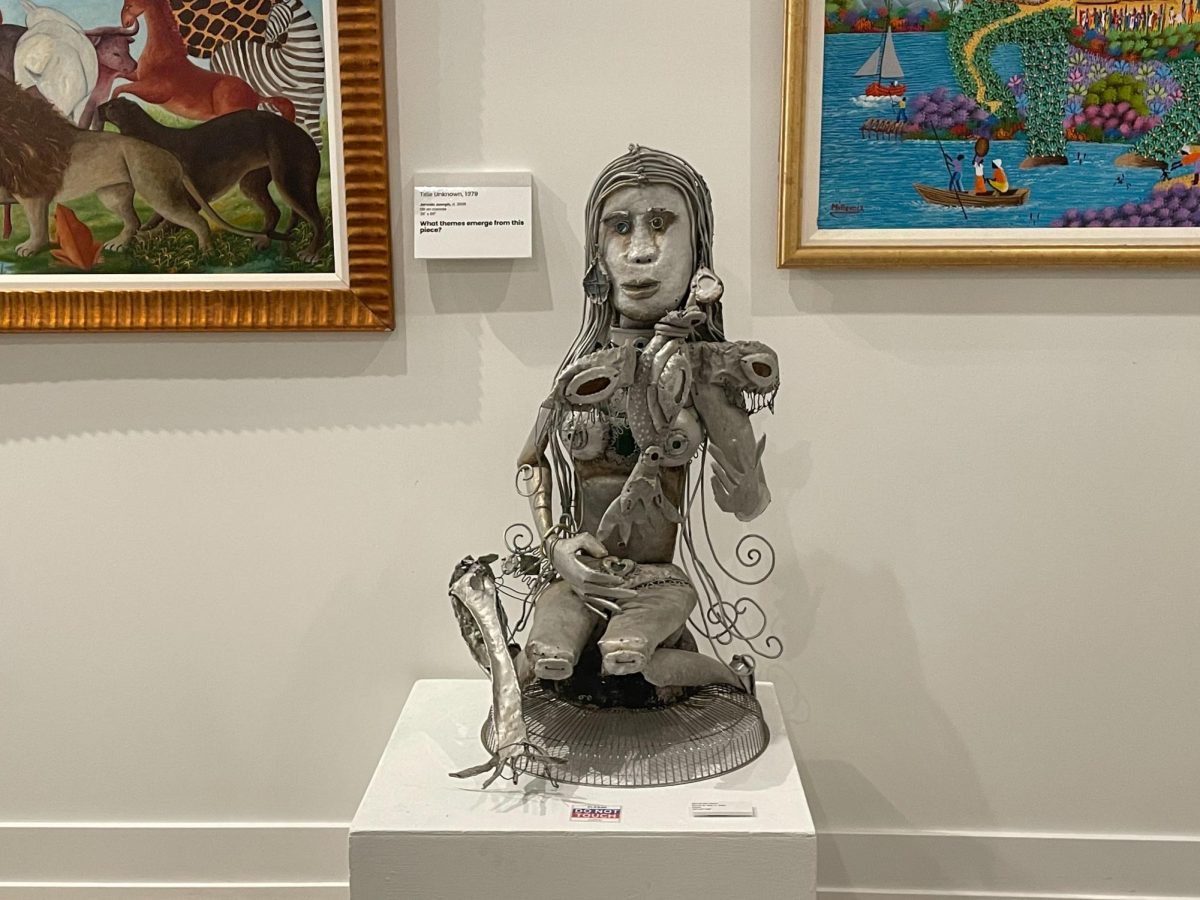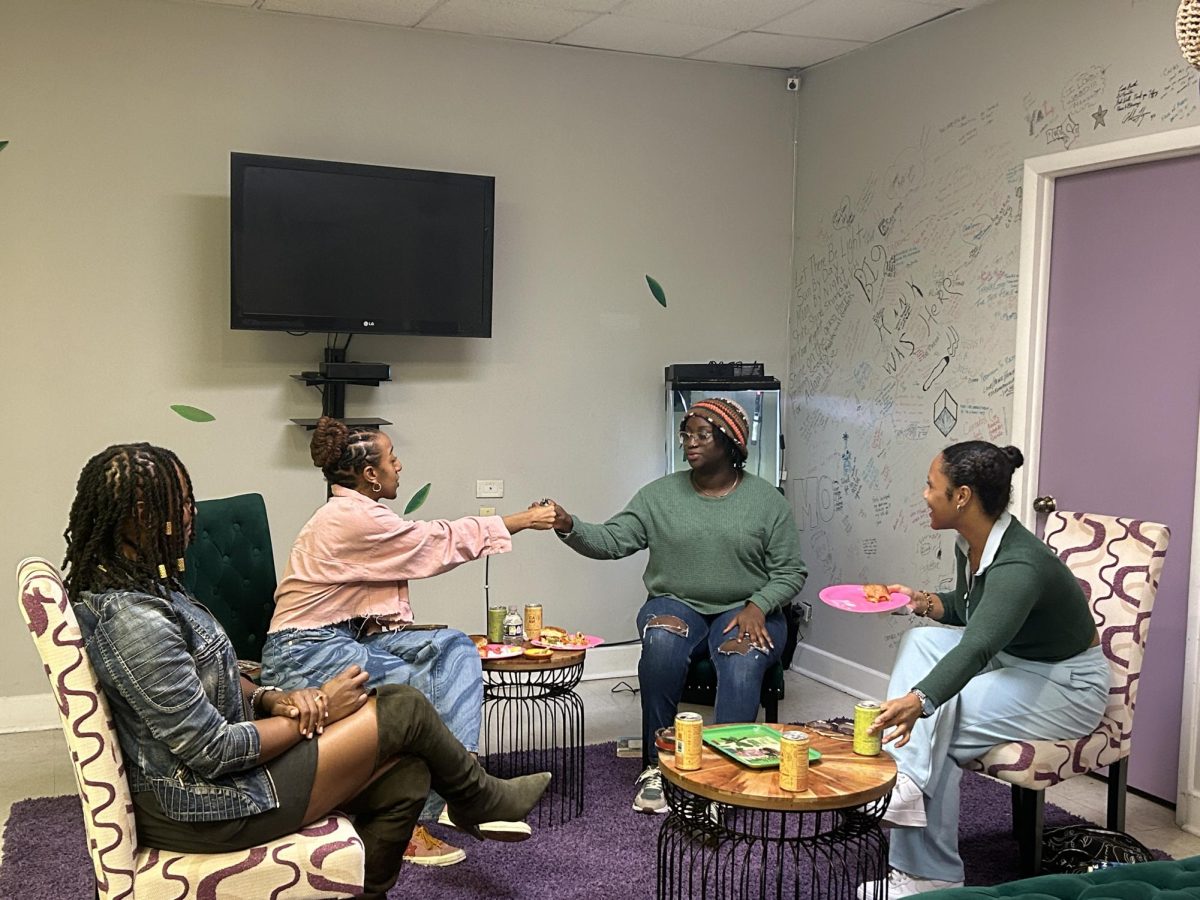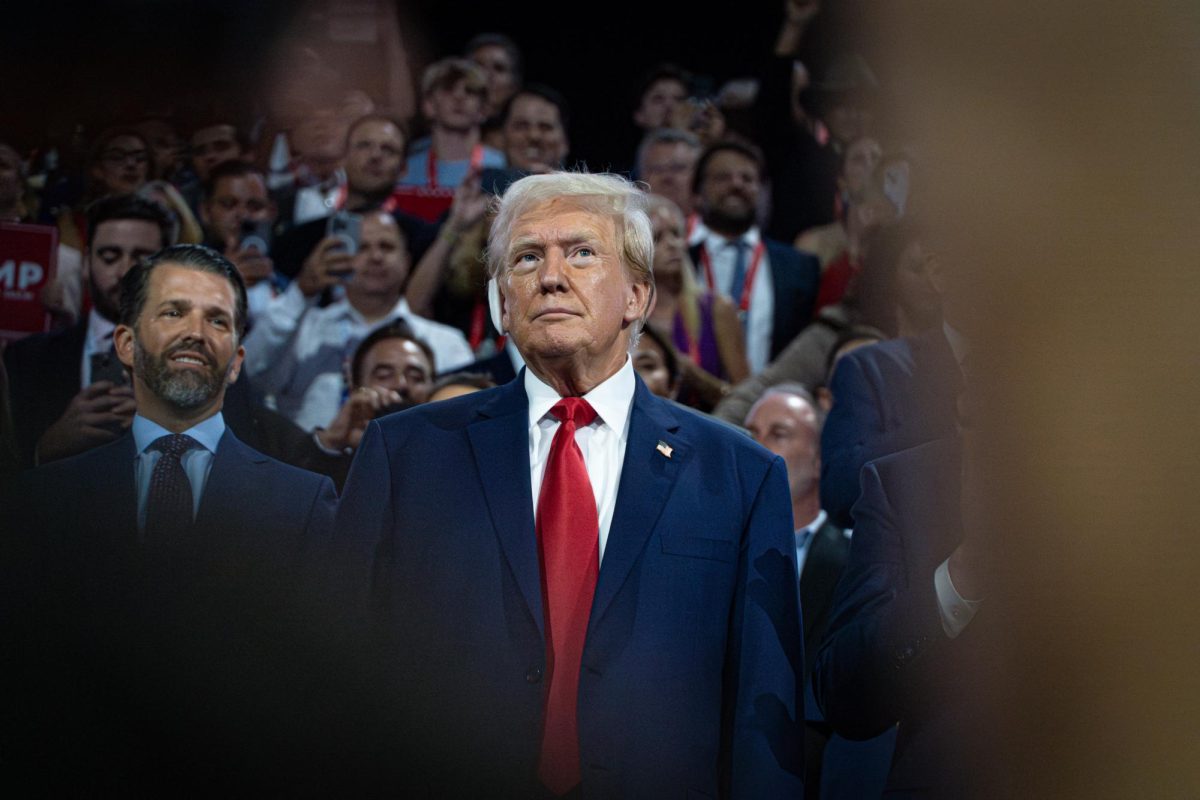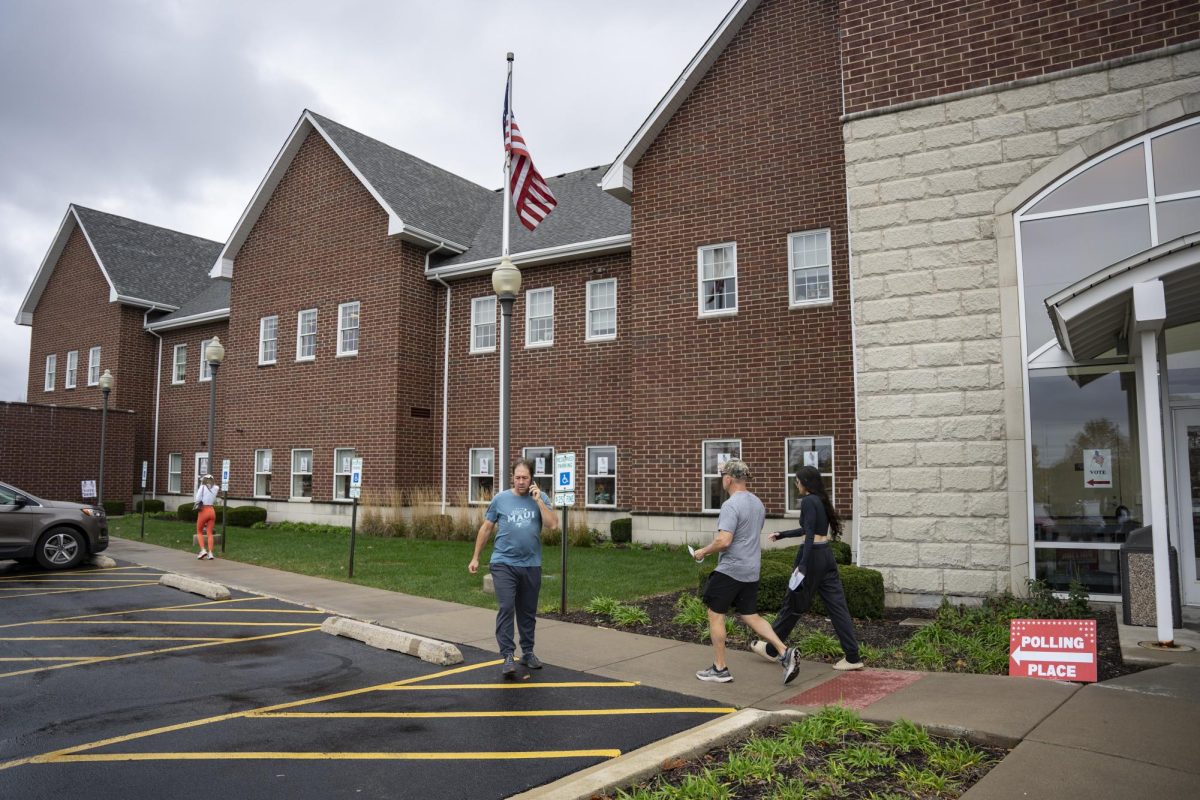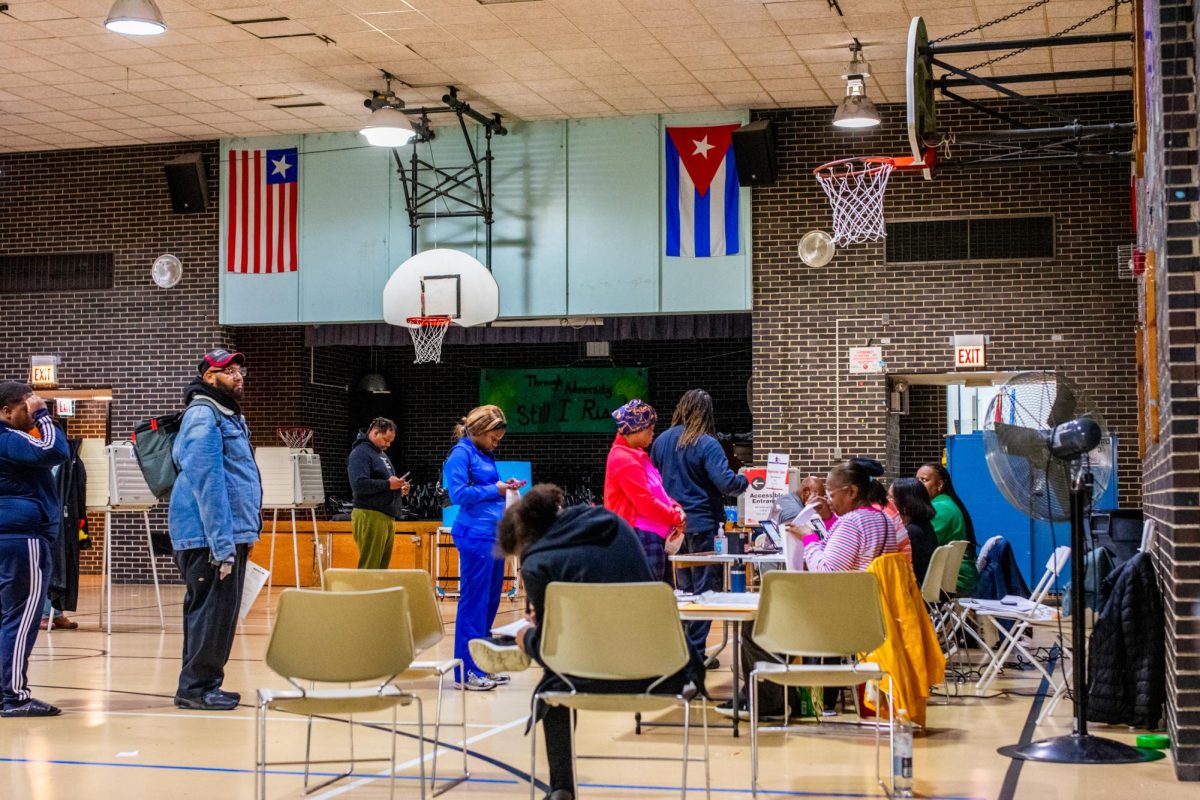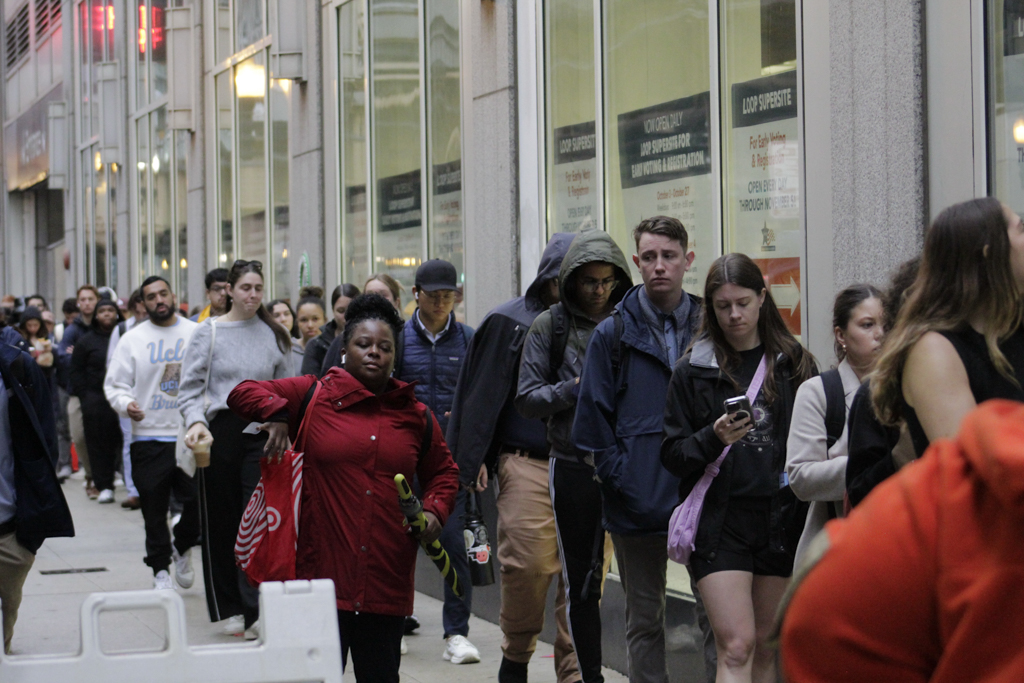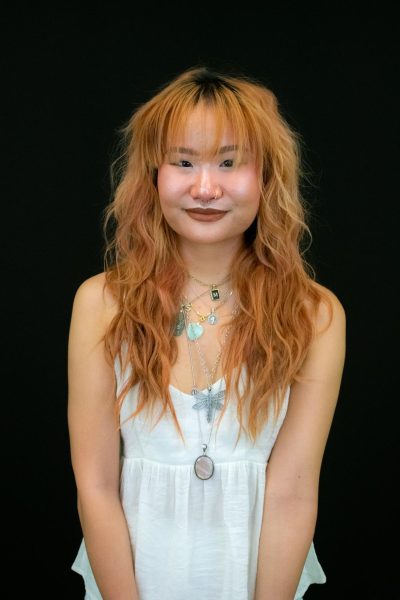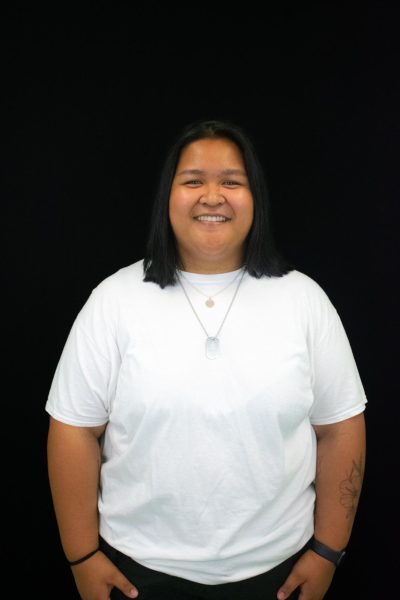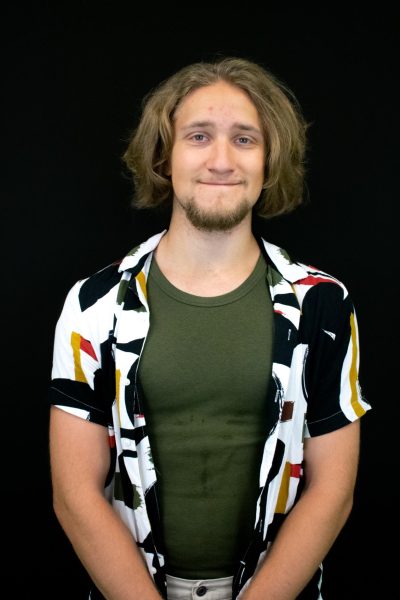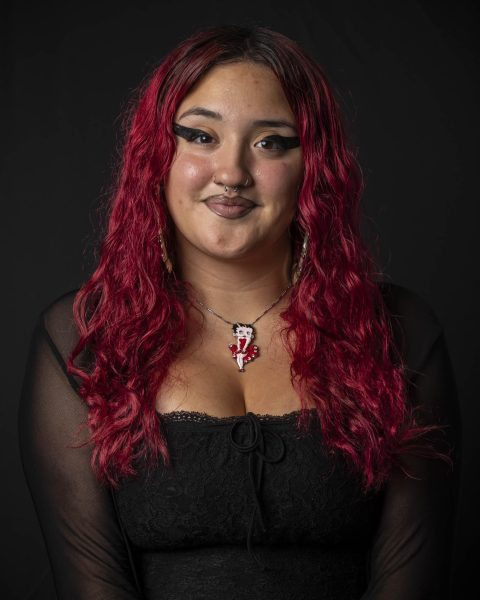As the Democratic National Convention in Chicago continued into its third day, young voters in the city reflected on the challenges the presidential campaigns face in winning this critical segment of the electorate.
An estimated 40 million new eligible voters in this election cycle are Gen Z, according to The Center for Information & Research on Civic Learning and Engagement at Tufts University, or CIRCLE, with just under half of that population being people of color.
More than 200 social media content creators were invited to the DNC with media access for the first time, including August Hutchins, a rising junior at Guilford College in North Carolina. He works with Civic Influencers as a content creator, posting nonpartisan voting information to “educate and inspire young people.”
His most recent TikTok video shows the behind the scenes of the DNC as well as interviews with state delegates. Through his credentials, he’s been able to attend meetings with women, LGBTQ+ and Asian-American caucuses.
“Your voice is your vote. If you’re not voting, you’re not being counted and represented,” said Hutchins. “At the LGBTQ+ caucus today, someone spoke and they shared a quote I wrote down, ‘if you’re not at the table, you’re on the menu’ and that really resonated with me.”
Civic Influencers focus their efforts on college campuses in swing states like North Carolina, Michigan and Pennsylvania to mobilize youth voters. Hutchins says, “they could be the deciding factor in an election.”
Hutchins also said that despite being a large voting block, he’s seen very few young people inside the convention. He is one of 15 students from colleges across the country chosen to be a part of the DNC on behalf of Civic Influencers.
A recent survey from GenForward, which polls younger voters nationwide, suggests that issues like the war in Gaza, reproductive rights and immigration will drive many to vote in this election.
Sharon Bloyd-Peshkin, the creator of Columbia Votes, a student organization at Columbia College assisting in voter registration, works firsthand with a lot of young voters and said that “young people are in a position to be the deciders in this election.” She noted the impact that young people had in the 2020 election as a driving factor for their preferred outcome.
“This isn’t to say that all young people vote alike,” she said. “But I strongly believe that those who have the biggest investment in the future of this country and in the issues the two parties differ on —including abortion, LGBTQIA+ rights, the environment, gun control — should strongly influence the outcome of this election.”
On the third day of the DNC, Laura Jackson, a millennial from Dekalb, stood outside of the United Center with a sign reading “Hate has no home here.” She works for a nonprofit organization focused on addressing issues for women’s rights, Her Advocacy.
“After the overturning of Roe v. Wade, I think that young women especially, but younger voters are seeing the impact that it has on everyone as a whole and understanding that it’s not just about abortion and promiscuity, but more about women’s health in general,” Jackson said.
Although she typically votes for the Democratic nominee, she said that “Kamala needs to earn our vote.” She said that people are at a “crossroads” in terms of the Democratic and Republican nominees but believes her third-party vote in the 2020 election was “a mistake.”
“It was a mistake, and I saw that,” she said. “I’ve seen over the years how that impacted us. I think that the way that we’re set up in the United States, voting third party it’s not going to help anybody.”
Third-party candidates have not been historically popular among voters nor successful in winning the presidential election. However, due to the global impacts of this year’s election, many young voters are reconsidering their options. The pro-Palestinian protest drew in many young voters to Union Park near the DNC, including Yusuf Masood who said his main concern was foreign policy.
“A lot of us are people of color, and our parents or grandparents moved from foreign countries that were affected by US policy, especially like Muslims such as myself,” Masood said. “We are in this country. We are also criminalized. We have certain stereotypes around our religion, around our ethnicity, and I feel like most young voters have that view.”
He said that he was considering voting for a third-party candidate.
“The Democrats are making promises but not actually keeping them, and very heavily, leaning into more right wing,” he adds. “That’s another reason why younger voters aren’t really in support of the Democrats.”
Gabi Fernandez is also opposed to the two major parties. She was with the Center for Political Innovation, passing out booklets around Union Park.
“We live in this pro-imperialist system that is killing people,” Fernandez said. “We have homelessness, the opioid crisis is up, we can’t afford food… so we can’t afford to live…. We need universal healthcare, and it’s like all the issues are right in front of us, but they [politicians] choose not to listen to us.”
Nino Brown with the Party for Socialism and Liberation, also expressed his concerns as a young voter in this “very dire situation.” He explained how the voting “forces us to choose between two ruling class candidates who serve the same interests.” The campaign strategies of the two major parties have targeted young voters and Brown said it was “insulting” and “unserious.”
“The Democratic party knows how to pander, bringing out rappers and entertainers thinking that we can just be lulled into voting for them,” he said.
Democrats have utilized pop culture references while campaigning, including having rapper Lil Jon perform at the DNC yesterday.
In her first campaign video, after she became an official presidential candidate, Harris used the song “Freedom” by Beyonce. Harris has also used songs by Chappell Roan and Megan Thee Stallion during her campaign, two artists that are currently on the Billboard Hot 100 list and part of Gen Z.
Former President Donald Trump, however, has played songs written by older artists, including Kid Rock, Celine Dion, and James Brown.
Harris’ deputy campaign manager Quentin Fulks told Politico that young voters are “critical.”
He says that Harris is “seeing a lot of enthusiasm among young voters” and people of color.
“But you’ve got to turn that out and we have to make sure that we’re turning this enthusiasm and momentum into actual votes,” Fulks said.
Jada Muhammad, a rising senior at North Carolina Agricultural and Technical Institute, was also attending the DNC for Civic Influencers. She told the Chronicle that national elections may be decided by the thousands but in primary elections, decisions can come down to 36 votes, “That’s your college football team.”
Muhammad said going to an HBCU, there is hesitancy to vote because of the history of voting restrictions in the U.S. but now is a different time.
“Kill that stigma. Your vote does in fact matter.” said Muhammad, “A lot of minorities have not been able to represent themselves. There is a history of being oppressed and voter suppression in general. Whether that was Jim Crow laws or those literacy tests preventing people from going to the polls. That stigma has kind of carried on into the present day.”
Every year over 4 million young people are eligible to vote. Brown described how every election he has been involved in has been called “the most important election of my lifetime,” but feels hopeful this time around.
“To clearly vote for an alternative to the two-party system, I think it would send a major message that the youth have to be reckoned with, listened to, and dealt with in a very serious way.”
Additional reporting by Patience Hurston
Copy edited by Vanessa Orozco


